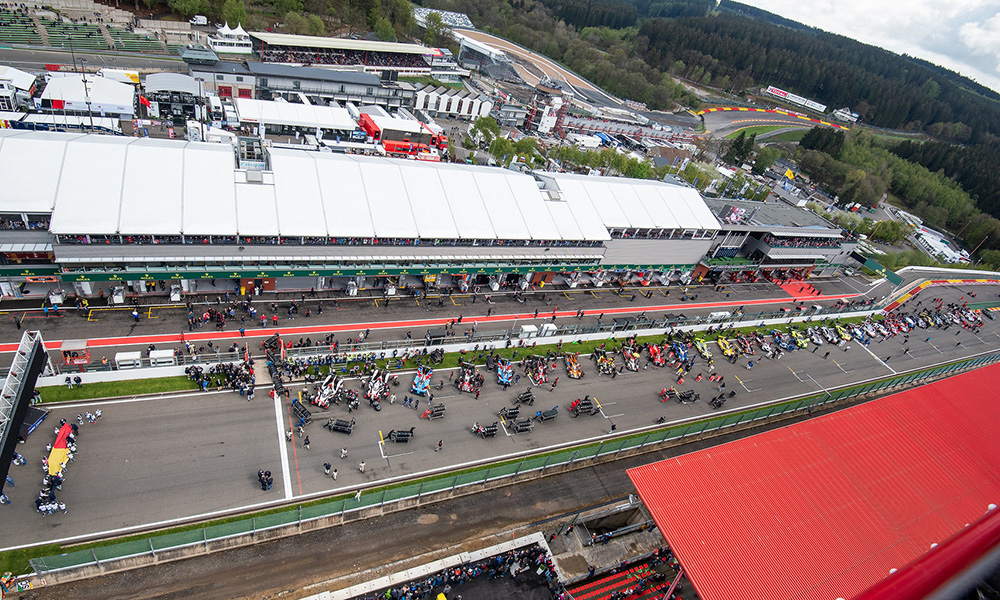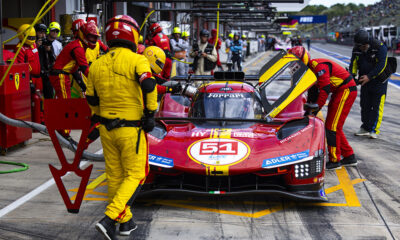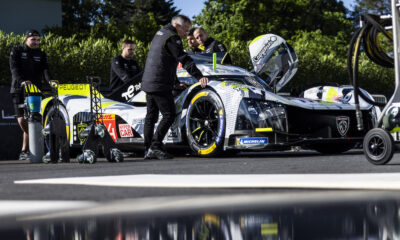
Photo: Adrenal Media/WEC
FIA World Endurance Championship CEO Gerard Neveu says that steps have to be taken to ensure the long-term health of the globe-trotting series, as motorsport as a whole is set to face a “huge economical crisis” following the coronavirus pandemic.
While the WEC’s immediate focus has been ensuring the safety of its competitors amid the global heath crisis, Neveu said he and his team have been working “10-12 hour” days not only in planning the resumption of the 2019-20 season but also forecasting changes for 2021 and beyond.
Confirmed on Friday, the championship will shift back to a calendar year format next year, with a projected season that will begin in March and end in November. The number of races have yet to be determined.
With the global economy already taking a significant hit, Neveu said they have to be proactive in realizing that the WEC, like all championships, will have a different look and feel to it once racing resumes.
“We have to be prepared,” Neveu said. “After the health crisis, we will have to face a huge economical crisis. Thats’s no question.
“The question is what level; how much? How will it impact the paddock, the partners the teams, the priorities of the manufacturers?
“Nobody has the answers [right now]. We have to wait to the end to know exactly what the impact is.”
The WEC has fought through turbulent times before and Neveu said he believes they will be able to weather the storm again.
Peugeot’s last-minute withdrawal, made weeks before the launch of the WEC in 2012, put the series on life support from the beginning, although it recovered and arguably became one of the most hotly contested and technically relevant championships just two years later with the arrival of Porsche in the LMP1 Hybrid ranks alongside Audi and Toyota.
The dieselgate crisis, however, came as a crushing blow by 2016 when Audi pulled the plug on its program, followed one year later by Porsche, which prompted the WEC to move into a transitionary state with the 2018-19 ‘Super Season’.
Its first proper ‘winter season’ was supposed to occur in 2019-20 until the virus pandemic forced the extension of the season by more than five months.
Reverting to a traditional calendar year schedule, Neveu says, will help teams financially and also puts the WEC back on the same cycle of technical regulations utilized in the IMSA WeatherTech SportsCar Championship and European Le Mans Series.
The jointly developed LMDh regulations, for instance, will now debut in 2022 in both the WEC and WeatherTech Championship instead of six months earlier in what would have been the WEC’s 2021-22 season.
“Now it looks like to do a calendar like this is a priority because it works better,” Neveu said.
“We also have to consider that the economic world will change, definitely. It will not only be from the promoter or organizer’s side. It will also be from the manufacturer’s side.
“Suddenly, it will be probably be easier to find a way to save money because we will have no other option.
“These are the points we have to integrate into the way we’re thinking or imagining the future of the WEC.
“I think that the reality today reminds us that we have to take a very serious decision in the short [term] to guarantee the future of sports car endurance racing and the WEC.
“There are different factors in front of us and we have no problem to work with it.
“This is the very good point of this crisis. We will have to reset, rethink, rebuild something considering the the after [effects] of the virus crisis.”
Neveu said he still feels there’s good times ahead for the WEC, having hinted at potential changes to the format and an increased alliance with IMSA that all could play to their benefit.
“For sure we have a fantastic motorsport page in front of us, new chapters,” he said. “But you probably have to rethink and reset some different things.
“Maybe to make a small evolution of the format and to see what we can do.”























